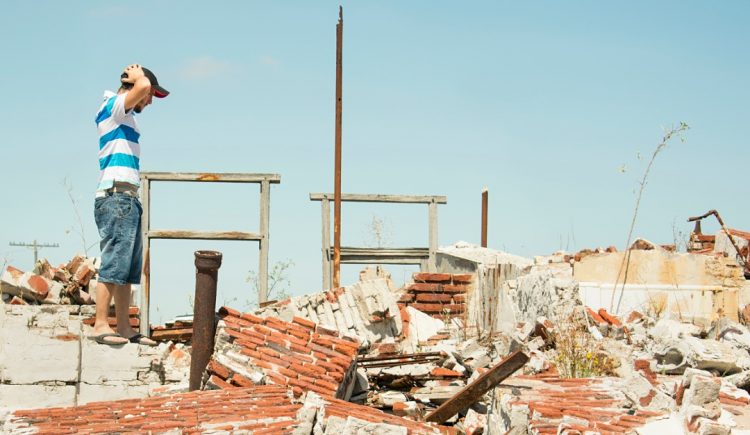Although Americans typically associate earthquakes with California, they can happen anywhere, even far from known fault lines. Most earthquakes cause little or no damage, but a powerful quake can cause widespread destruction. A standard homeowners insurance policy may not cover earthquake damage. Purchasing a separate earthquake insurance policy is an option.
What Earthquake Insurance Covers
If your home is damaged or destroyed by an earthquake, an earthquake insurance policy can pay to have it repaired or rebuilt. Some insurance companies include building code upgrade coverage or offer it as an add-on. If you have that type of coverage and your older home gets damaged or destroyed by an earthquake, your insurance company will pay to have it repaired or rebuilt so it complies with current building codes.
Earthquake insurance will cover personal property that gets damaged or destroyed. If an earthquake renders your house uninhabitable, loss of use coverage will pay for additional living expenses while your home is being repaired or rebuilt. If you can’t live in your house but you still have to pay your mortgage, loss of use coverage can prevent you from being overwhelmed financially.
An earthquake insurance policy won’t necessarily cover all damage. An earthquake can cause other problems, such as fires and flooding. Depending on the circumstances, your homeowners or flood insurance policy might pay for repairs or replacement.
Costs for Earthquake Insurance
Premiums for earthquake insurance vary widely, depending on location and how often earthquakes occur there. Rates may be much lower in low-risk areas than in places that experience frequent earthquakes. If you’re concerned about high premiums, you can choose a policy with a higher deductible.
Other Factors to Consider
Think about where your house is located, how often earthquakes happen there, how serious they generally are, the materials used to build your house, whether it was constructed to withstand an earthquake, the amount of rainfall your area typically gets, and the type of soil on your property. Consider the value of your home and its contents. Ask yourself if you would be able to pay to have your house rebuilt from scratch and replace all your belongings if you lost everything in an earthquake and didn’t have insurance.
Deductibles for earthquake insurance policies are usually a percentage of the total amount of coverage. If, for example, your house gets damaged or destroyed by an earthquake and you have a 20% deductible, you will have to pay 20% of your coverage amount before your policy will cover any of the bills. If the damage is minor and the cost of repairs is less than your deductible, your insurance will pay nothing at all.
Weigh the Pros and Cons
Earthquake insurance can protect you from financial ruin if an earthquake destroys your home. If your area never experiences an earthquake, or if an earthquake occurs but causes minimal damage to your house, you may pay a lot of money in premiums but never use your policy.











